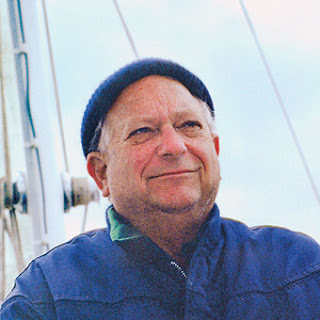Throughout his academic career, Hanson has written extensively on ancient Greek and Roman history, military history, and contemporary politics. He has authored or edited more than two dozen books, including "The Western Way of War: Infantry Battle in Classical Greece" (1989), "The Soul of Battle: From Ancient Times to the Present Day, How Three Great Liberators Vanquished Tyranny" (1999), and "Mexifornia: A State of Becoming" (2003).
Sunday, April 16, 2023
Dr. Victor Davis Hanson
Chess: the Ultimate Game of Consequences
The chessboard is an 8x8 square grid, consisting of 64 squares of alternating colors. Each player has 16 pieces: one king, one queen, two rooks, two knights, two bishops, and eight pawns. The pieces move in different ways, and each piece has its own value and importance.
The Objective
The objective of the game is to checkmate the opponent's king. This means that the opponent's king is in a position to be captured (in check), and there is no legal move that the opponent can make to get out of check. The game can also end in a draw if neither player is able to checkmate the other.
The Basque Language
Thursday, April 13, 2023
Jack Vance
Jack Vance (1916-2013) was an American writer of science fiction and fantasy, widely regarded as one of the most important and influential writers in the genre. He was born in San Francisco and grew up in the Bay Area, where he studied mining engineering at the University of California, Berkeley. After serving in the U.S. Merchant Marine during World War II, Vance worked as a bellhop, a copper miner, and a seaman before turning to writing full-time in the early 1950s.
Vance's early stories appeared in pulp magazines like Thrilling Wonder Stories and Astounding Science Fiction, and he quickly gained a reputation for his inventive world-building, complex plots, and distinctive prose style. His first novel, "The Dying Earth" (1950), established him as a major new talent in the field of science fiction and fantasy. He went on to write more than 60 novels and numerous short stories over the course of his long career.
Wednesday, April 12, 2023
Ayn Rand
Ayn Rand was a Russian-American novelist, philosopher, and political thinker, born Alisa Zinovyevna Rosenbaum on February 2, 1905, in Saint Petersburg, Russia. Rand's family was well-educated and financially successful, but they lost their wealth and status after the Bolshevik Revolution in 1917. Rand studied philosophy and history at Petrograd State University but was forced to leave after her father's business was seized by the Soviet government.
In 1926, Rand emigrated to the United States, where she began her career as a screenwriter in Hollywood. She later turned to writing novels and became famous for her works of fiction, including "The Fountainhead" and "Atlas Shrugged." Her philosophy of Objectivism, which emphasized individualism, reason, and laissez-faire capitalism, had a significant impact on conservative and libertarian thought in the United States.
Throughout her life, Rand was an outspoken critic of collectivism and totalitarianism, and she believed that individual rights were paramount. She also believed that artistic and intellectual pursuits were essential to the human experience, and she celebrated the virtues of individualism, rationality, and self-interest.
We the Living, by Ayn Rand
The novel centers around the life of Kira Argounova, a young woman who, despite her intelligence and independent spirit, is unable to escape the oppressive regime that dominates her life. Throughout the novel, Rand portrays the Soviet system as a suffocating force that crushes the individual spirit and ambition of its citizens.
Sunday, April 2, 2023
The Tyrannical Impulse and Social Justice
There is no such thing as "social justice"; it is a null concept allegedly first-coined by Luigi Taparelli, a Catholic priest, c. 1840. If you try to find a definition of this term, you'll get something like this:
(from the Oxford English Dictionary): "justice in terms of the distribution of wealth, opportunities, and privileges within a society."
(from The UN, 2006): "the fair and equitable distribution of economic, political, and social resources, based on the principles of equality, human rights, and non-discrimination."
Just take a few minutes and digest that. Important questions arise. What are economic resources? Who decides what is fair, and just? Who distributes these things? And more importantly, who produces them?
-
by John Russell Turner May 9, 2019 Some women and girls who consider abortion do so because they are faced with extreme difficulties, sho...
-
It's been almost six years since Hurricane Katrina hit New Orleans-and the city is still recovering. The 2010 census for Orleans Parish ...
-
Fired For Words This week, I've not had much time to do any original writing. I am very busy these days, with my full-time job and sc...










